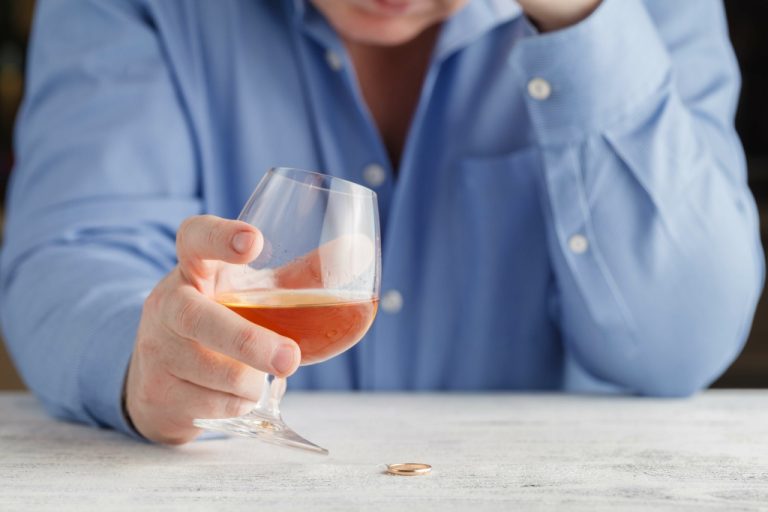Get matched with a licensed therapist based on your individual preferences and needs. Therapy sessions are available via messaging, phone, or live video chat. Ask yourself who in your network would be an http://www.freedisk.ru/ru/new/?from=345&us=1&ru=0&eu=1&uk=0&ww=0&photo=0&nophoto=&noorder=1&order=1&receive=1 advocate for your recovery, and who might tempt you to return to substance use. Humans are inherently social creatures, and we often fall into similar patterns of behavior as the people closest to us.

Make a List of the Key Elements You Want to Address in Your Plan
SMART Recovery, a program grounded in empowering individuals to break free from the chains of addictive behaviors, underscores the importance of mental liberation through the DIBs tool. This article illuminates the transformative power of DIBs in the journey toward sustainable recovery. If you see yourself in these descriptions, fret not; healing and exciting new ways of living are well within your reach. Emotional sobriety occurs when you decide your emotional health can be better, and you embark on a growth journey to learn how to contend with your feelings. Emotional sobriety means letting go of immature ways of dealing with life, such as numbing out with alcohol or drugs, and other behaviors like pouting, screaming or shutting down. Acknowledging and celebrating the hard work of recovery is helpful for keeping you motivated and reminding you why you took this brave step toward sobriety in the first place.
Have a support system
The show provides a generally accurate portrayal of the dangers of drug and alcohol abuse and the problems common to high school students that often lead to substance abuse. First, there are no fixed requirements for a personal recovery plan. It doesn’t change along with your emotions, but it accounts for them in the process. It gives you a plan of action for when you don’t know what to do.
- Dr. Deena is a doctor of psychology and licensed clinical social worker since 1993.
- Family, friends, support groups or therapists can have a unique role in your recovery.
- This helps an individual to return to work and productive engagement while offering the accountability and support that is necessary for early recovery.
- I’m still surprised to find so many people who either don’t have a plan at all or their plan is likely to fail because it’s not very well developed.
- For these reasons, let’s take the next step and get more focused about your goals.
Emotional Drinking: What Happens When You Drink To Feel Better
You’ll find that your clients have more success avoiding relapse when they have a solid plan to deal with triggers, temptation, and all the other challenges that come with sobriety. A good relapse prevention plan will help your client recognize when they are at risk, and it will give them several ways to navigate these experiences successfully. Some people prefer one-on-one therapy to recovery groups or 12-step programs.

It is organized and carefully constructed, so all you have to do is implement it. Learning to identify and talk about your feelings is the first step toward living with them. You may have found it necessary to subdue your feelings with alcohol or drugs in the past. Talk therapy (even with an understanding and compassionate friend) is the beginning of welcoming feelings back into your experience.
- At this critical initial stage, it can be important to ensure that you continue certain treatment aspects, such as counseling and communicating with recovery experts.
- If you don’t like doing this step or have challenges that make it difficult for you, have someone help you write down your plan.
- Launched in 2019, Mind Matters is curated and edited by an expert clinical team, which is led by Robyn Dotson Martin, LPC-S.
- It’s simply not enough to just think about your recovery plan; you need to make it permanent.
- If the goals you have selected do seem reasonable and within your ability to achieve them, they are worth keeping as active goals to work on.
- Leslie Riley, MS, LCDC-I, CPRSS, is a peer recovery specialist who works on Navigator, Menninger’s recovery management program.
When young people begin using substances (usually subconsciously) to soften their feelings, the process of maturing emotionally is slowed or paused, often until the person stops using. That’s a personal decision but first https://www.saltandpreppy.com/charlestonrecoverycenter/ look for people who are positive, healthy, and available. Likely candidates will include friends, family, co-workers, healthcare professionals, peer supporters, faith leaders, and support group members or sponsors.
Maintaining sobriety is a process, it’s a process of learning a new way to live. An absolute must after completing drug treatment is to create a sober life plan using your newfound life skills and tools. This is a plan of action, a proactive plan allowing you understand how to handle your triggers and utilize the resources available in order to continue the recovery process. Creating a detailed and comprehensive addiction recovery plan can seem daunting, but it is an important step in the journey to sobriety. By taking the time to create a plan, you are more likely to stick to your treatment and achieve long-term success.
- In these programs, it’s customary to receive plastic chips as you progress to the one-year mark, at which time you receive a bronze coin.
- The process of recovery is highly personal and occurs via many pathways.
- These inner enemies come armed with deceptive allure, masquerading as friends or saviors, promising relief, pleasure, or escape.
- Rather than becoming victims of their emotions, emotionally sober people take their power back and learn to feel their feelings.
- However, the word is often used in different ways in different contexts.
When this happens, it is important to have a plan so that you can act quickly and prevent any further damage. This might include having a person who you call who knows your history or a facility you’ve https://www.motorcycletests.net/can-you-get-a-dui-on-a-motorcycle/ researched. For instance, alcohol is a substance that is commonly used within social gatherings, and what seems like a fairly innocuous invitation could place you in a position of temptation.
Below is an example of an addiction recovery plan that you can use when creating your own. You don’t need to be sober to start an addiction recovery plan, and you don’t even need to achieve abstinence along the way. For a newly recovered person, there are a lot of new situations and emotions to contend with. A therapist can help you to understand these and help you learn how to best handle them. They can also help you to develop, tweak, or implement your personal action plan.